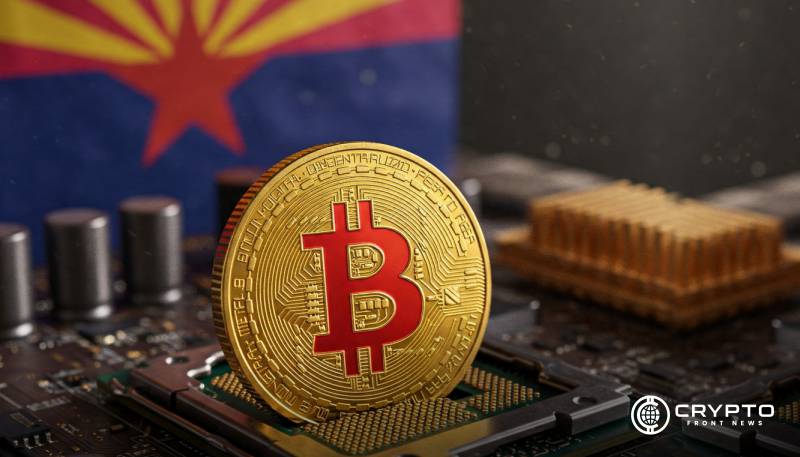- Arizona’s new legislation allows the state to hold unclaimed digital assets within their original form, forming a Strategic Bitcoin Reserve Fund.
- Governor Hobbs enacted into law HB2749, enabling Arizona to stake virtual assets and leverage rewards for the financial development of the state.
- The legislation offers a budget-neutral framework, ensuring Arizona can benefit from digital assets without increasing government size or taxes.
Arizona has enacted House Bill 2749, creating a Strategic Bitcoin Reserve to manage unclaimed digital assets, staking rewards, and airdrops. This measure makes Arizona the first U.S. state to hold unclaimed cryptocurrencies in their native form.
Arizona Takes Legislative Action on Digital Assets
Governor Katie Hobbs signed House Bill 2749 into law after bipartisan approval in both chambers of the state legislature. The new law introduces a clear process to identify, manage, and secure unclaimed virtual assets, including various cryptocurrencies.
According to a statement released by Weninger,The legislation allows the Department of Revenue to receive these assets once they are deemed abandoned. Assets are classified as abandoned if no owner response is received over a three-year period. Once in state custody, digital assets will be kept in their native form, rather than being converted into fiat currency.
Arizona is now the second U.S. state to establish a legal structure for cryptocurrency reserves, following New Hampshire. The law is designed to be budget-neutral and does not increase taxes or expand government operations.
Strategic Bitcoin Reserve Framework Introduced
The Strategic Bitcoin Reserve Fund will receive rewards earned through staking and digital asset airdrops. The state’s qualified custodians are authorized to carry out these staking activities. Funds collected from these operations will be managed by the State Treasurer and can be allocated through legislative approval.
Chairman Jeff Weninger, who championed the bill, stated the law aligns with modern financial developments. He emphasized that Arizona is adapting to the current economic landscape by protecting property rights and enabling the state to benefit from unused assets.
Dennis Porter, CEO of Satoshi Action Fund, also reacted in his announcement, saying Arizona had “turned forgotten assets into a fortress against inflation.” The statement highlighted the potential value in managing these digital holdings.
Governor Vetoes Direct Crypto Investment Bill
Governor Hobbs’ signing of HB2749 followed her veto of a different crypto proposal. The Arizona Strategic Bitcoin Reserve Act would have permitted investment of up to 10% of state treasury and retirement system funds into crypto.
While direct investment was not approved, Arizona still advanced a practical approach by focusing on unclaimed assets. This legislative direction gives the state access to crypto without exposure to market speculation. Lawmakers have reinforced Arizona’s role in adopting forward-looking financial technologies within a controlled structure.




